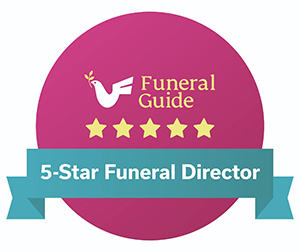Benefits & Financial Help
In certain circumstances, you may claim certain benefits or one-off payments if you lived with or were dependent on the deceased. Generally, time limits apply to claims, so it is advisable to contact your nearest Jobcentre Plus as soon as possible to find out if you are eligible. This is only a brief guide, and other benefits may be available to you; for more information, telephone your local Jobcentre Plus or Download the Bereavement Benefits claim pack from the Department of Work and Pensions Website
- Bereavement Payment
- Bereavement Allowance
- Widowed Parent’s Allowance
We have included a summary of these benefits below.
How to claim
Claim by phone by calling the Bereavement Service helpline.
Bereavement Service Helpline
Telephone: 0800 731 0469
Monday to Friday, 8 am to 6 pm
An adviser will also help you claim any other bereavement benefits you might be entitled to.
You can also claim by post by downloading and filling in the claim form and then sending it to the address on the form. Download from the www.gov.uk website.
How Funeral Payments are paid
All benefits, pensions and allowances are paid into the account you choose, for example, your bank account. If the funeral director’s invoice has not already been paid, the Funeral Payment will usually be paid directly into the funeral director’s bank account. If the funeral director’s bill has been paid, the payment will be made to you to pass on to the funeral director.
Social Fund Funeral Payment
Who is eligible?
- be arranging a funeral in the UK, the European Economic Area (EEA) or Switzerland
- Meet the rules on your relationship with the deceased
- get certain benefits or tax credits
You may be eligible for a Funeral Payment from the Social Fund if you or your partner (The term partner is used here to mean a person you are married to or a person you live with as if you are married to them, a civil partner, or person you live with as if you are civil partners) are getting any of the following benefits or tax credits:
- Income Support
- income-based Jobseeker’s Allowance
- income-related Employment and Support Allowance
- Pension Credit
- Housing Benefit
- the disability or severe disability element of Working Tax Credit
- Child Tax Credit
- Universal Credit
Your relationship with the person who has died.
To be eligible for a Funeral Payment, you must also be either:
- the partner of the deceased when they died
- a close relative or close friend of the deceased
- the parent of a baby stillborn after 24 weeks of pregnancy
- the parent or person responsible for a deceased child who was under 16(or under 20 and in approved education or training)
Other available money
When how much help you can get is worked out, how much money (other than your savings) is available to help you with the funeral cost will also be looked at. This could include money available from the estate of the person who died, contributions received and money from, for example, insurance policies, but does not include the social security Bereavement Payment or money from certain government-funded trusts. To be eligible, the person who died must have been ordinarily resident in the UK and the funeral must usually be in the UK.
How much do you get?
A Funeral Payment includes necessary burial or cremation fees, certain other specified expenses and up to £1000 for any other funeral expenses, like the:
- Funeral director’s fees
- Coffin or Flowers
Effect on other benefits
There is no effect on other benefits from having a Funeral Payment.
Widowed Parents Allowance
If you’re a parent whose husband, wife or civil partner has died and you have at least one child who you receive Child Benefit for, you may be able to get Widowed Parent’s Allowance (WPA).
- your husband, wife or civil partner died before 6 April 2017
- you’re under State Pension age
- you’re entitled to Child Benefit for at least one child, and your late husband, wife, or civil partner was their parent
- your late husband, wife or civil partner paid National Insurance contributions or died due to an industrial accident or disease.
You may also claim WPA if you’re pregnant and your husband has died or you’re pregnant after fertility treatment and your civil partner has died.
You cannot claim if the following applies to you:
- were divorced from your husband, wife or civil partner when they died
- remarry or are living with another person as if you’re married to them or as if
you’ve formed a civil partnership - were over State Pension age when you were widowed or became a surviving civil
partner – you may be able to get extra State Pension - are in prison
The amount you get is based on how much your late husband, wife or civil partner paid in National Insurance contributions. In some cases, you may be entitled to an additional pension.
Bereavement Allowance
The bereavement allowance is a taxable weekly benefit, which is paid for up to 52 weeks after the death of your Husband, Wife or Civil Partner if you are eligible.
To apply, you must meet the following criteria:
- your husband, wife or civil partner died before 6 April 2017
- you were 45 or over when your husband, wife or civil partner died
- you’re under State Pension age
- your late husband, wife or civil partner paid National Insurance contributions,
or they died as a result of an industrial accident or disease
You cannot claim if the following applies to you:
- are bringing up children – you can claim Widowed Parent’s Allowance instead
- remarry or form a new civil partnership
- live with another person as if you’re married or in a civil partnership
- were divorced from your husband, wife or civil partner before their death
- were over State Pension age when you were widowed or became a surviving
civil partner – you may be able to get extra State Pension - are in prison
The amount you get is based on the overall level of your husband, wife or civil partner’s National Insurance contributions and your age at the time of their death.
The £2,000 payment is a one-off tax-free lump sum.
N.B. All benefits will be paid directly into a Bank Account.






